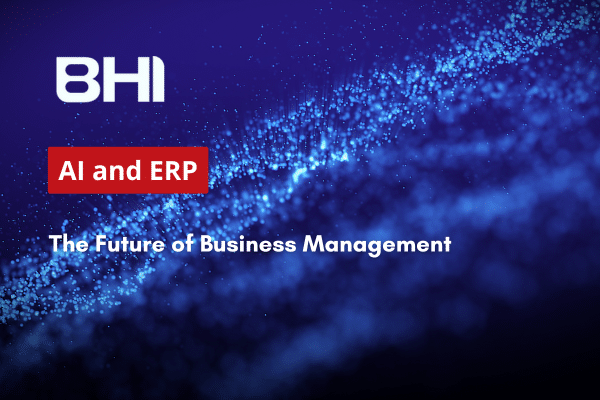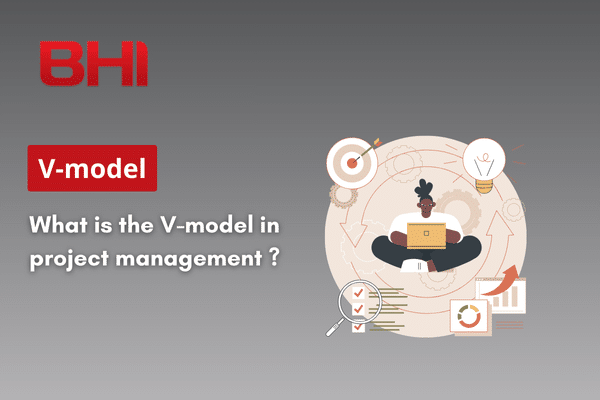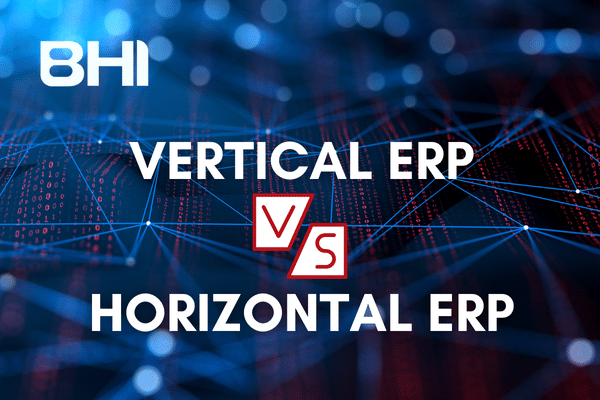In a world where data has become the new black gold, artificial intelligence is profoundly transforming enterprise management systems. This technological revolution is redefining the contours of operational efficiency and opening unprecedented perspectives for organizations of all sizes.
The Emergence of a New Era of Management
Enterprise Resource Planning (ERP) systems have been the digital backbone of companies for decades. According to a Grand View Research study, the global ERP market is expected to reach $78.40 billion by 2026, with an annual growth rate of 8.0%. This growth is largely explained by the increasing integration of artificial intelligence, which transforms these management tools into genuine cognitive assistants.
Enterprise Management Artificial Intelligence is no longer limited to simple automation. It now represents a major strategic lever for organizations seeking to optimize their processes, improve their decision-making, and anticipate market developments.
The Transformation Levers through AI
1. Intelligent Automation of Business Processes
The integration of AI into ERPs revolutionizes the automation of repetitive tasks. Unlike traditional automations based on fixed rules, AI ERP learns and continuously adapts:
- Intelligent document processing : Optical character recognition (OCR) algorithms coupled with machine learning enable automating a large portion of incoming invoice processing, with automation rates potentially exceeding 80% according to various recent studies.
- Adaptive validation : Systems learn from human corrections to refine their validation processes, which can lead to a significant reduction in errors over time.
- Dynamic workflows : AI automatically adjusts workflows based on observed performance, continuously optimizing operational efficiency.
2. Predictive Analytics in Service of Strategy
Cognitive ERP transforms mountains of data into actionable insights. AI’s predictive capabilities allow companies to anticipate rather than react :
Advanced financial forecasting : Algorithms analyze thousands of internal and external variables to generate forecasts with 92% accuracy, compared to 65% for traditional methods.
Proactive inventory management : AI predicts stock shortages 30 days in advance on average, enabling a 25% reduction in storage costs while maintaining a 98% customer service rate.
Predictive maintenance : In the manufacturing sector, AI integrated into ERPs helps anticipate numerous machine failures, significantly reducing unplanned downtime.
3. Augmented Intelligence for Decision Making
ERP Digital Transformation doesn’t replace humans but augments their decision-making capabilities:
- Intelligent dashboards : Interfaces automatically adapt to each user’s profile and habits, highlighting the most relevant KPIs.
- Contextual recommendations : AI suggests actions based on analysis of similar past situations, with a recommendation adoption rate of 78% according to a Forrester study.
- Scenario simulation : Executives can virtually test the impact of their strategic decisions, with models considering up to 10,000 variables simultaneously.
Tangible Benefits for Businesses
Measurable Productivity Gains
Companies that have adopted Enterprise Management Innovation solutions based on AI observe significant improvements :
Reduced processing time: Intelligent automation considerably accelerates administrative task processing, allowing the same team to handle a much higher volume of work.
Improved accuracy : Data entry and processing errors decrease sharply after AI implementation, generating substantial savings in corrections and disputes.
Resource optimization : Intelligent resource allocation enables optimal capacity utilization, with an average 35% improvement in asset utilization rate.
Sustainable Competitive Advantage
AI-ERP integration creates a virtuous circle of continuous improvement :
- Increased responsiveness: Companies reduce their response time to market changes by 70%, going from weeks to a few days to adapt their strategy.
- Facilitated innovation: AI frees teams from routine tasks, allowing them to focus on innovation. Many companies report an increase in innovative projects launched thanks to resources freed up by AI.
- Large-scale personalization: The ability to personalize services for each customer while maintaining operational efficiency becomes an accessible reality.
Implementation Challenges and Solutions
The Crucial Question of Data Quality
AI effectiveness directly depends on the quality of processed data. According to Gartner, a significant portion of AI projects fail or underperform due to inadequate data.
Practical solutions :
- Implementing strict data governance
- Cleaning and standardizing existing databases
- Training teams on the importance of data quality
Human Change Management
Technology alone is not enough. A majority of digital transformations fail due to insufficient human support.
Recommended approach :
- Progressive user training
- Creating internal change champions
- Transparent communication about benefits and impacts
Security and Ethical Issues
AI usage raises legitimate questions:
- Protection of sensitive data (GDPR compliance)
- Transparency of algorithmic decisions
- Responsibility in case of error
Trust framework :
- Regular algorithm audits
- Documentation of decision-making processes
- Implementation of human safeguards
Future Perspectives : The ERP of 2030
Emerging Trends
Generative AI in ERP : By 2027, a growing share of ERPs should integrate content generation capabilities, facilitating automatic creation of narrative reports and personalized analyses.
Total interoperability : Barriers between systems are gradually disappearing, creating fluid digital ecosystems where information flows without friction.
Quantum ERP : Early experiments with quantum computing promise revolutionary computing capabilities for complex simulations.
Progressive Implementation Strategy
For companies wishing to begin this transformation :
Phase 1 – Diagnosis (0-3 months) :
- Assessment of current digital maturity
- Identification of priority processes
- Potential ROI calculation
Phase 2 – Experimentation (3-9 months) :
- Pilot project on a limited scope
- Results measurement and adjustments
- Dedicated project team formation
Phase 3 – Deployment (9-18 months) :
- Progressive extension across the organization
- Continuous optimization based on feedback
- Institutionalization of new practices
Humans at the Heart of Transformation
It’s essential to remember that AI is only a tool in service of human intelligence. Successful companies are those that place humans at the center of their transformation strategy, using technology to augment their employees’ capabilities rather than replace them.
Skills are evolving: technical mastery is gradually giving way to the ability to interpret and exploit insights generated by AI. This evolution requires continuous investment in training and talent development.
Conclusion : Seizing the Transformation Opportunity
The integration of artificial intelligence into ERP systems represents much more than a simple technological evolution. It’s a revolution that redefines the very foundations of enterprise management. Organizations that embrace this transformation with method and vision will position themselves as tomorrow’s leaders.
The benefits are tangible and measurable: increased productivity, more informed decisions, facilitated innovation. But beyond the numbers, it’s the ability to create value in a more agile and relevant way that constitutes the real challenge.
The future belongs to companies that will transform their ERPs into genuine cognitive partners, capable of learning, anticipating, and continuously adapting to the challenges of an ever-evolving world.
Ready to transform your ERP with artificial intelligence ?
Contact us today for an assessment of your AI-ERP potential. Our experts support you at every step to integrate AI into your management systems. Together, let’s build the intelligent future of your digital transformation.

















